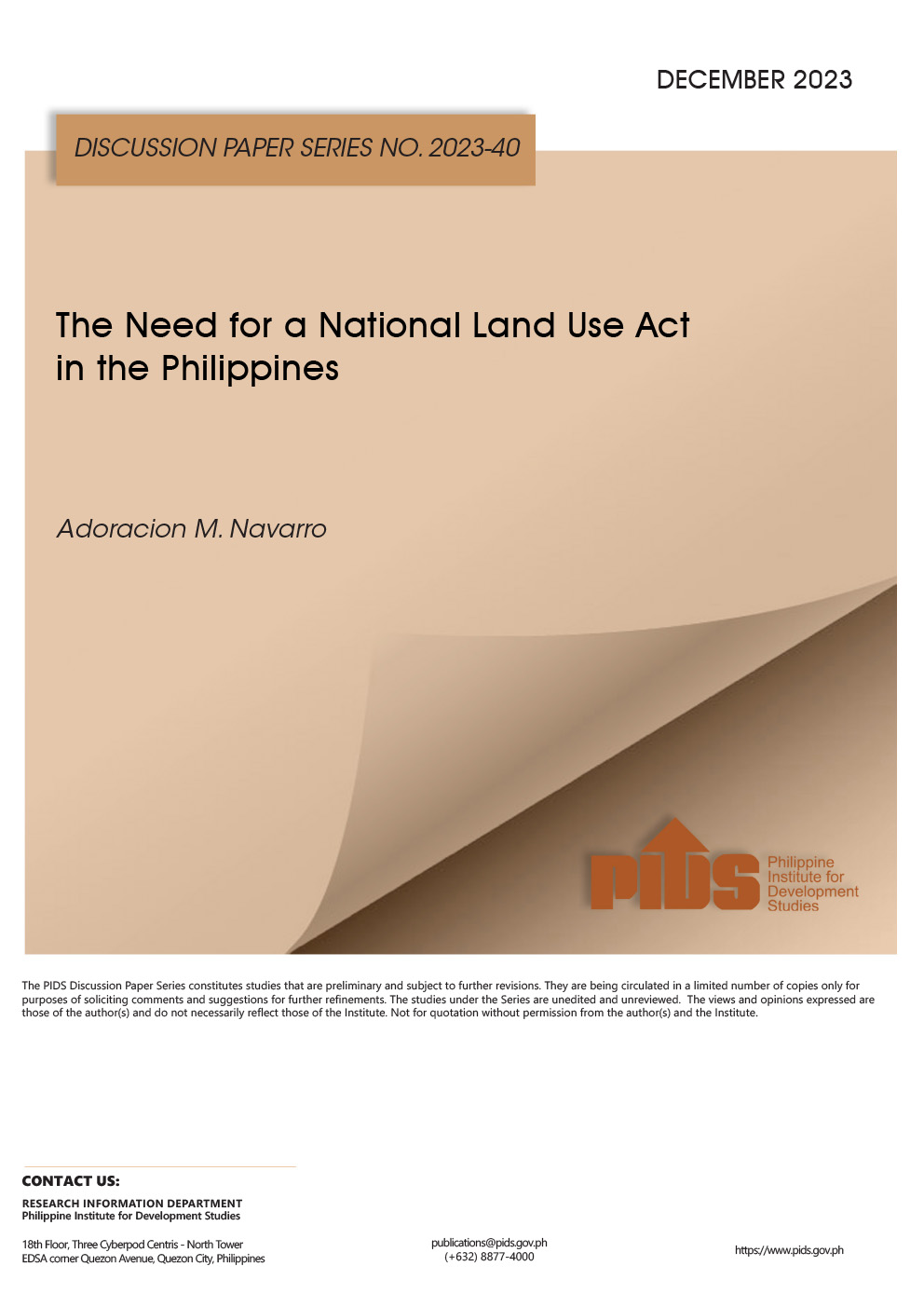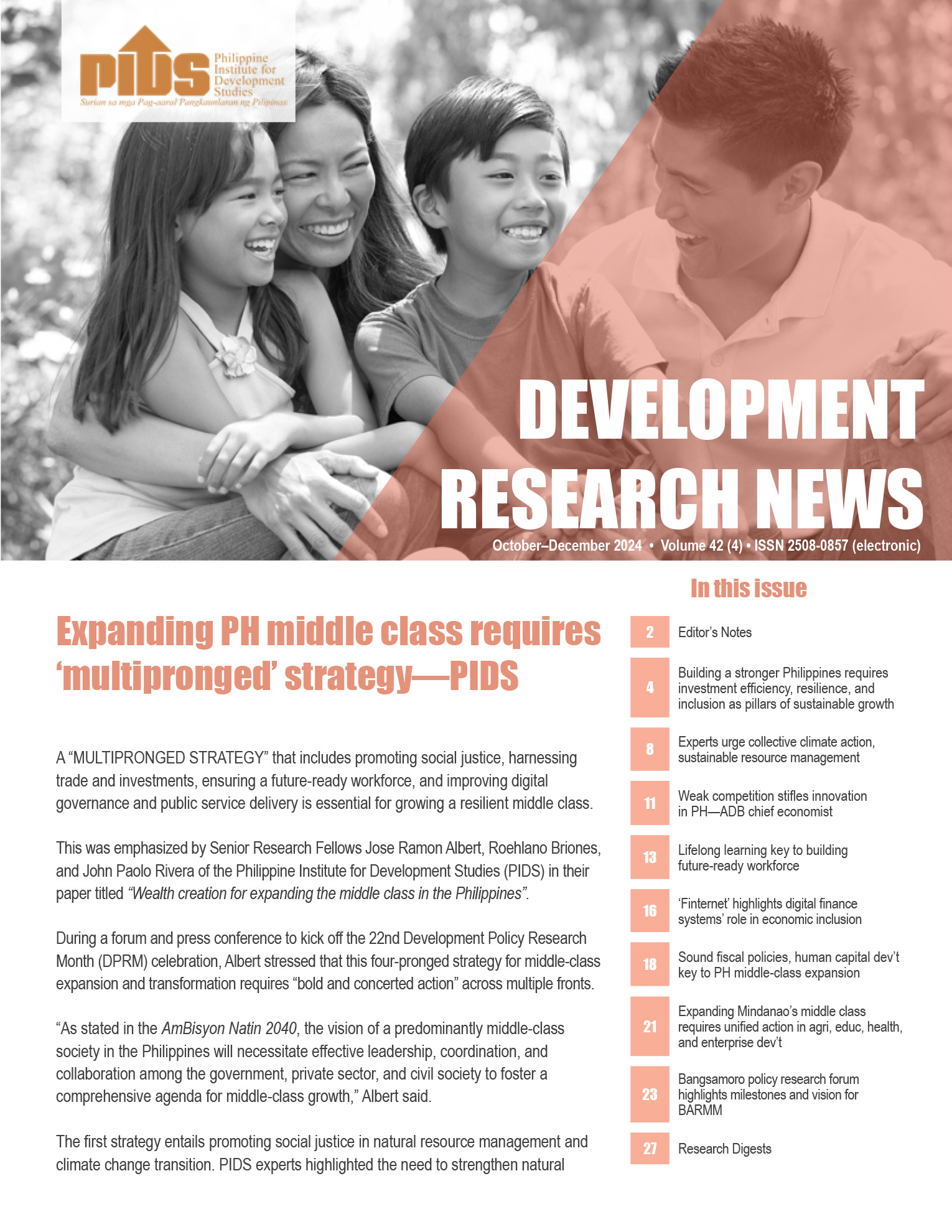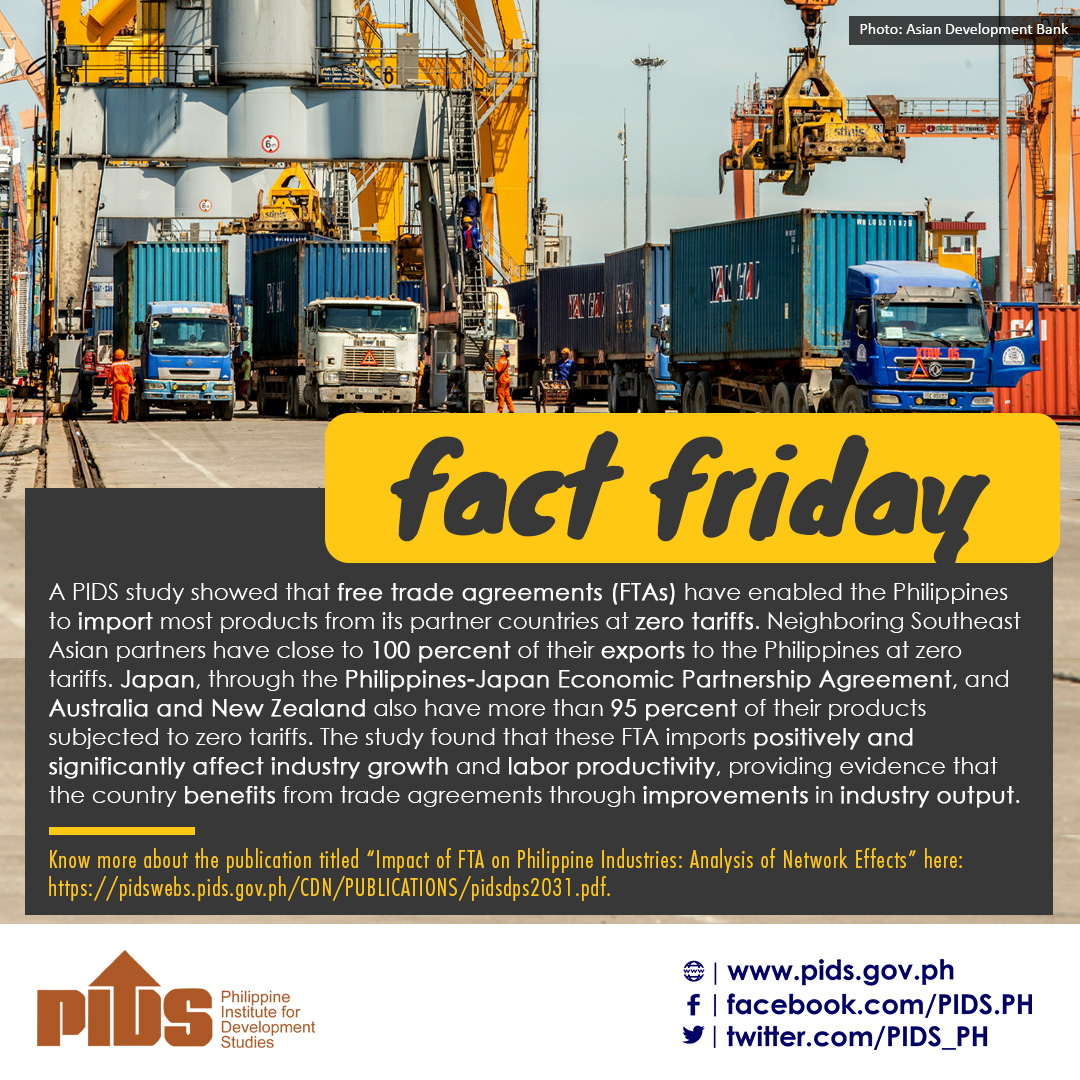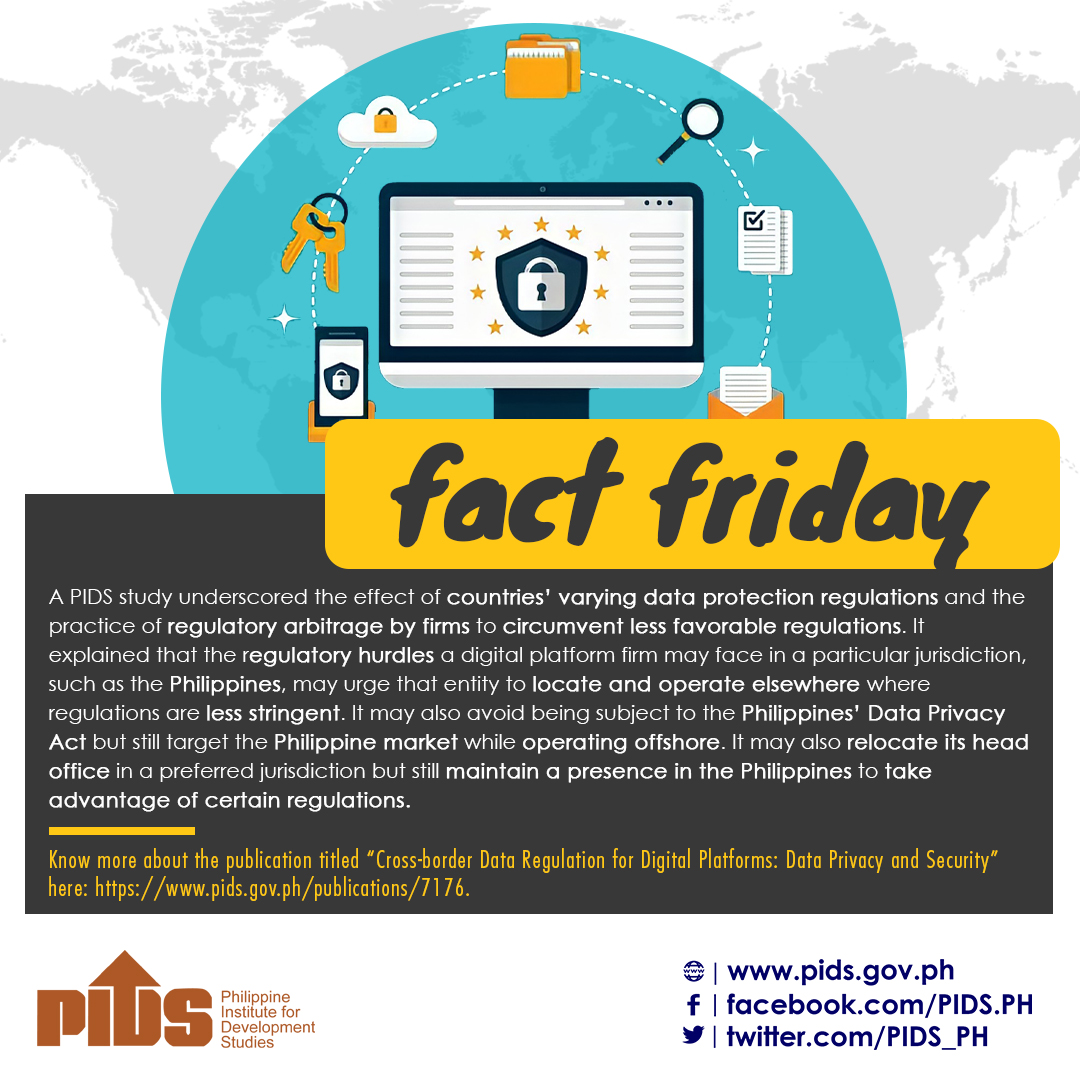Only one-third of Filipino firms surveyed by the government make use of the country’s free-trade agreements (FTAs), according to a study released by state-owned think tank Philippine Institute for Development Studies (PIDS).
The study, titled "How Are Firms Responding to Philippine Free Trade Agreements?,” authors led by PIDS Senior Research Fellow and Trade Assistant Secretary Rafaelita M. Aldaba, said that, out of 108 firms surveyed, only 33, or 30.6 percent, are FTA users. "This utilization rate may be considered to show a weak inclination to use FTAs in trade transactions, especially since exporters and importers, together, constitute a huge bulk of the sample,” the study stated.
Data showed that most of the FTA users were medium-sized firms that employ 51 to 300 workers. Most of the FTA users were also firms with foreign equity.
The study also stated that over 75 percent, or 25 out of the 33 FTA users, are firms fully or partially owned by foreigners, while only 7 of the 26 domestic firms state that they use FTAs.
"A majority of firms [70 percent] currently do not use FTAs,” the study stated. "Topping the list [of reasons for nonuse of FTA among firms] is lack of information, followed closely by using another scheme.”
The study stated that small- and medium-sized firms said they lacked information in using FTAs. Large firms, on the other hand, said they are already located in economic zones.
The large firms said the privileges granted to firms in economic zones include duty- and tax-free importation of raw materials, supplies, capital equipment and spare parts.
The study noted that 24 percent of the large firms and 33 percent of the medium-sized sample firms are located in economic zones. "Small trade volume and, to some extent, complicated COO [Certificate of Origin] requirements are also identified as constraints to using FTAs,” the study stated.
"Preparing all the documents entails work that creates fixed costs, so that only those that can afford to cover the costs are inclined to use an FTA scheme. In the Philippines it was noted that, despite the government efforts to streamline customs processes, some procedural lapses persist,” it added.
The study recommended the government, through the trade department, to initiate promotional campaigns and technical trainings live and online.
The information to be disseminated must be targeted toward manufacturing firms in export-processing and special-economic zones to educate them on the increased benefits of using FTAs beyond the zone-specific benefits that they already receive.
The study also urged the government to conduct a review of the COO access procedure to simplify the process. This will negate apprehensions that first-time FTA users may have.
Further, computerizing the COO issuances must also be pursued and integrated in the National Single Window.












